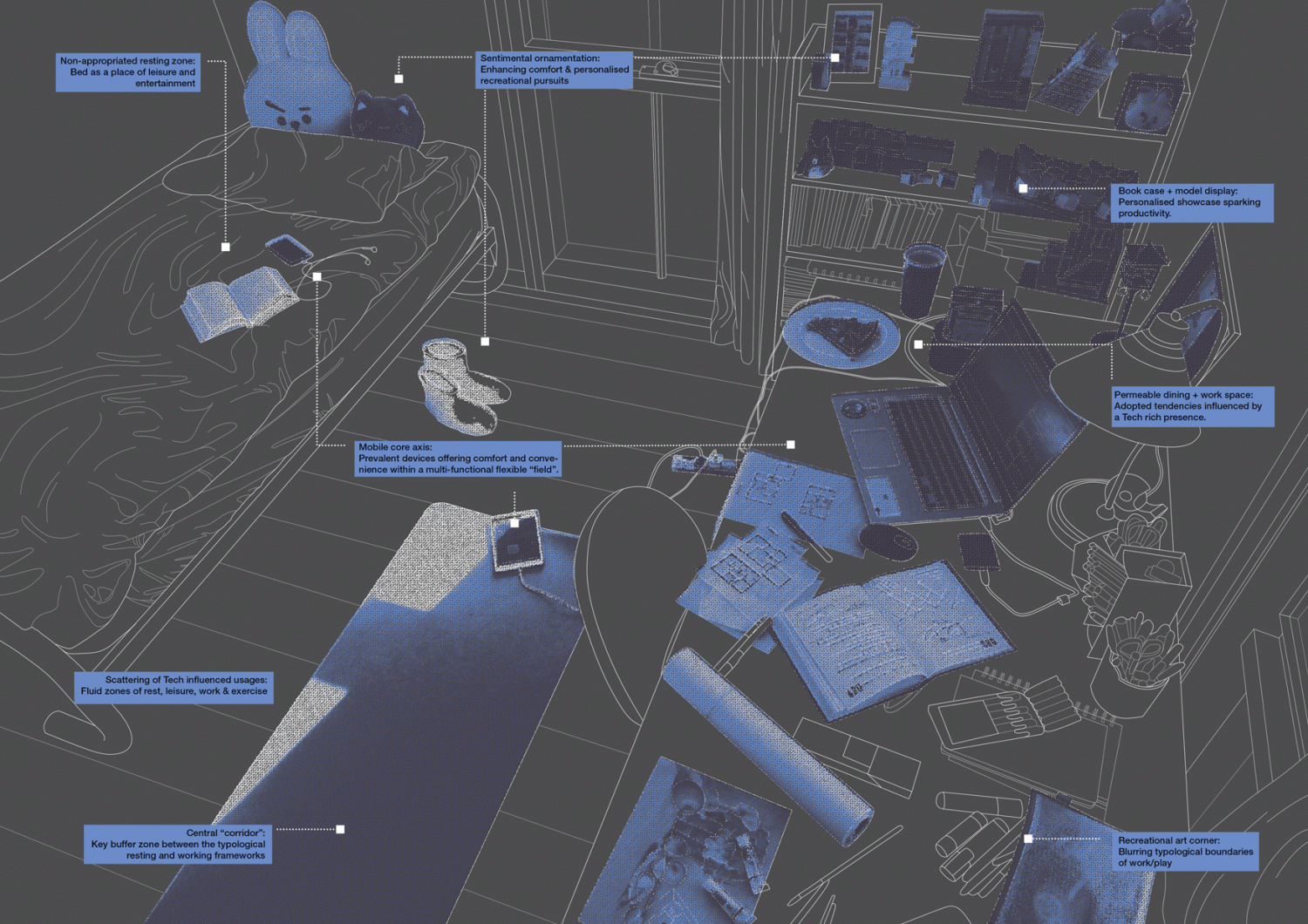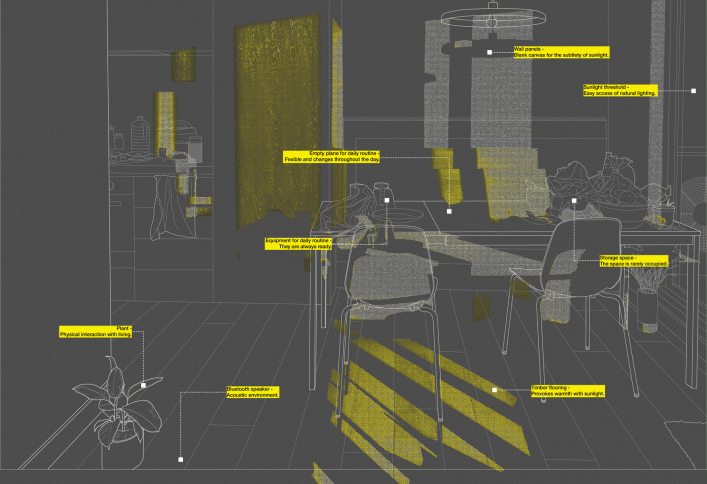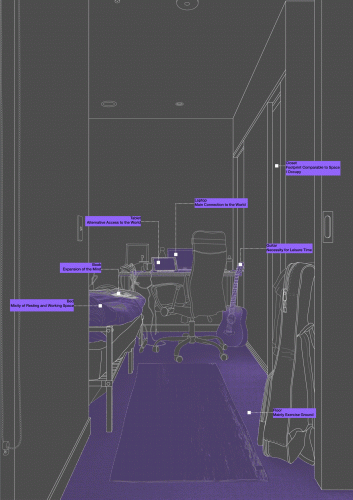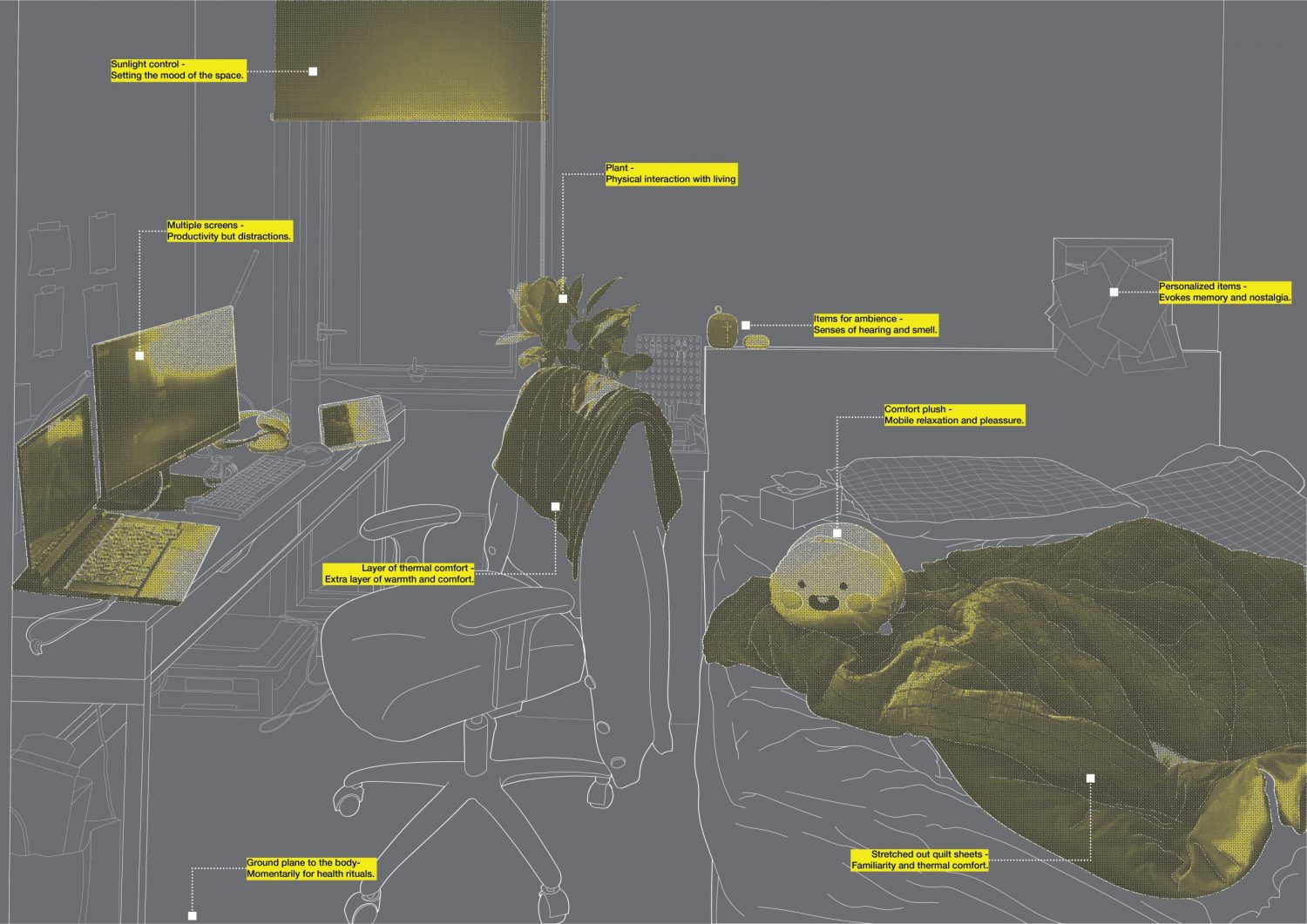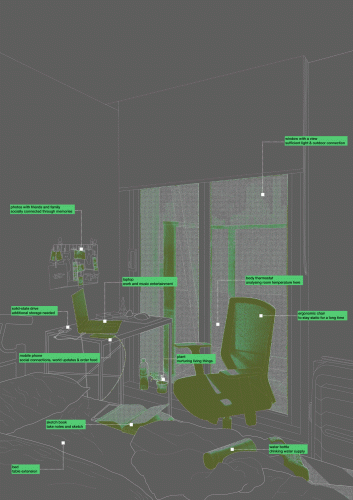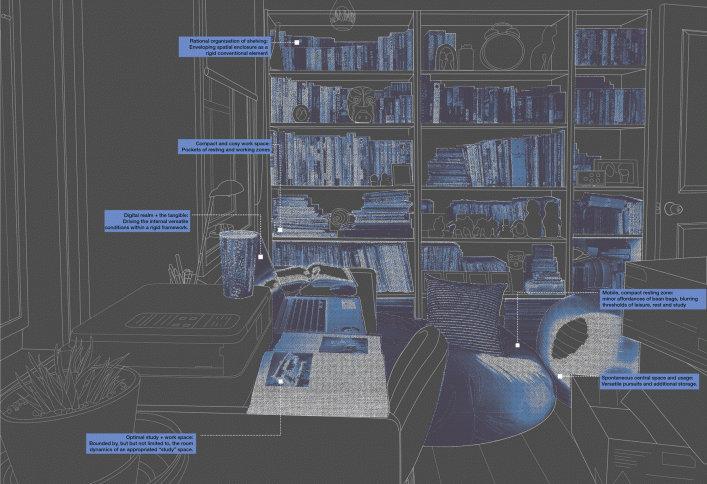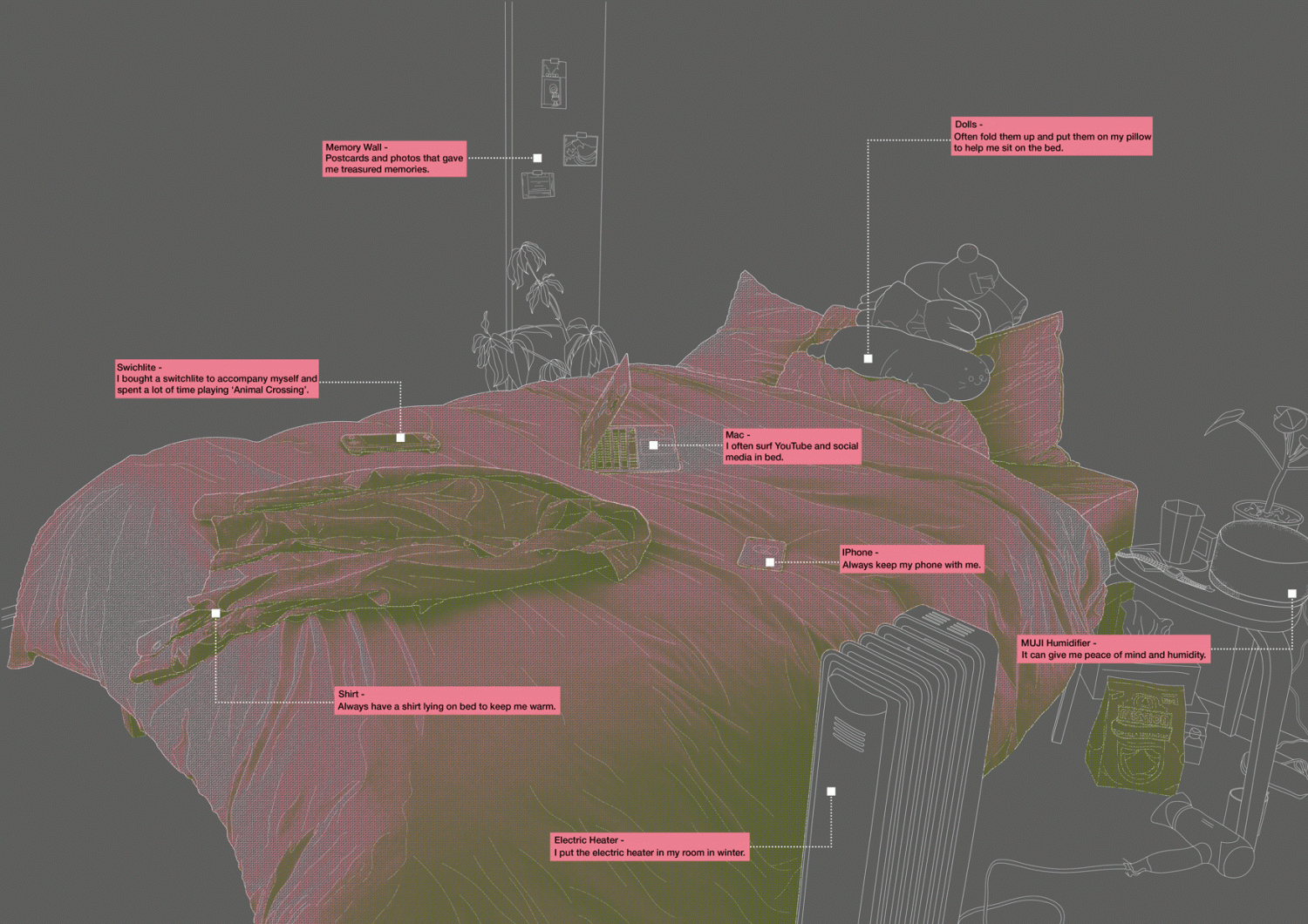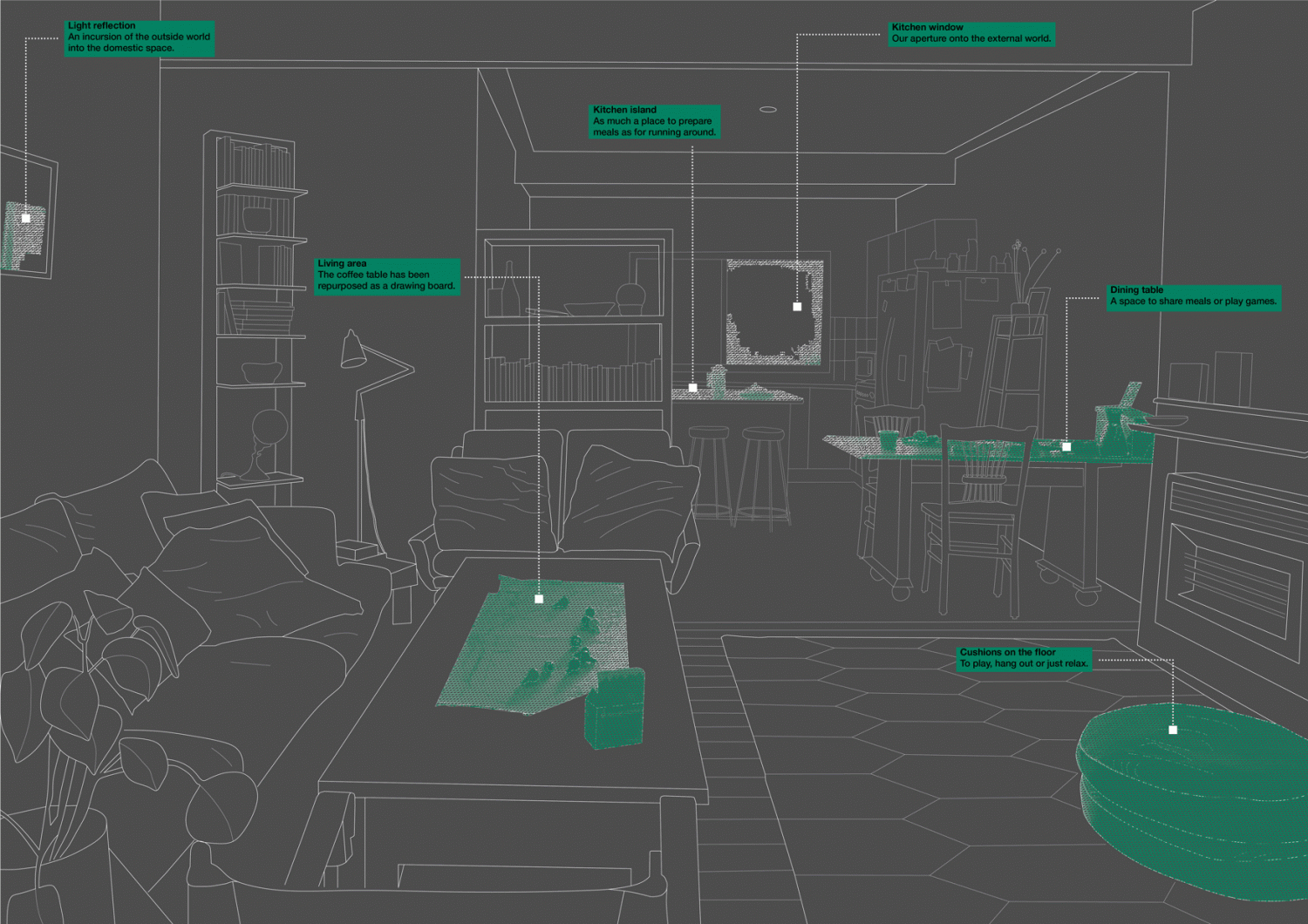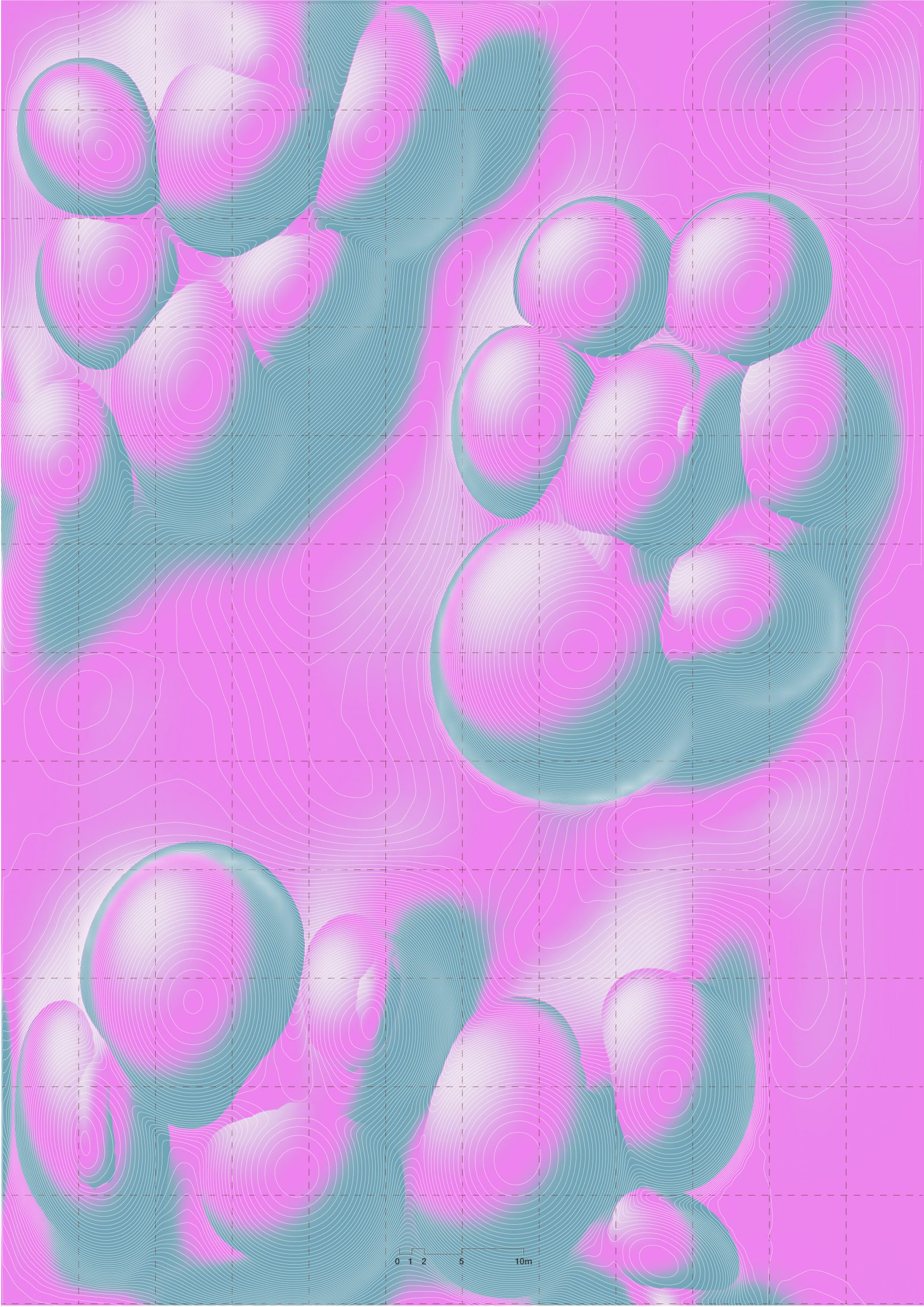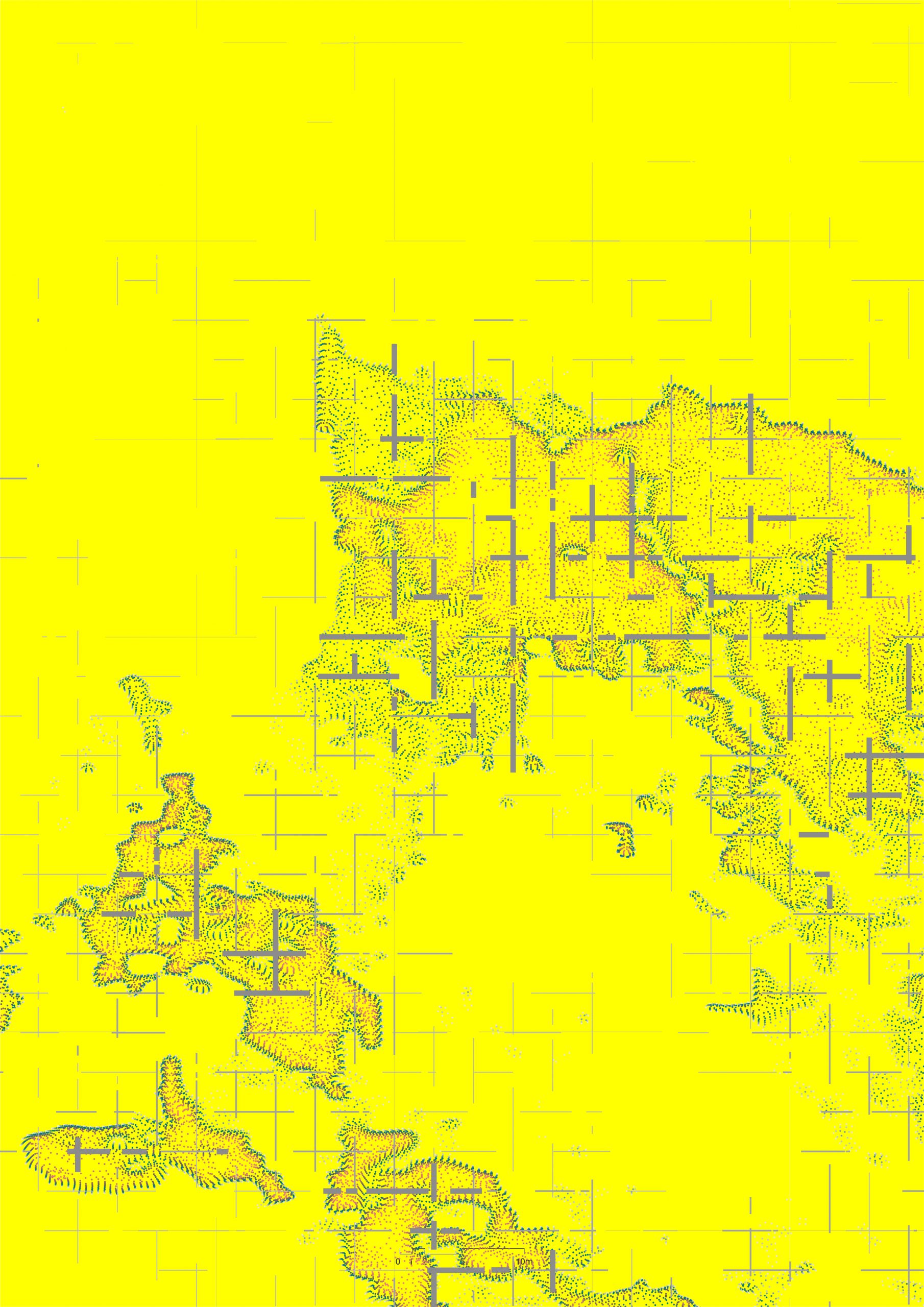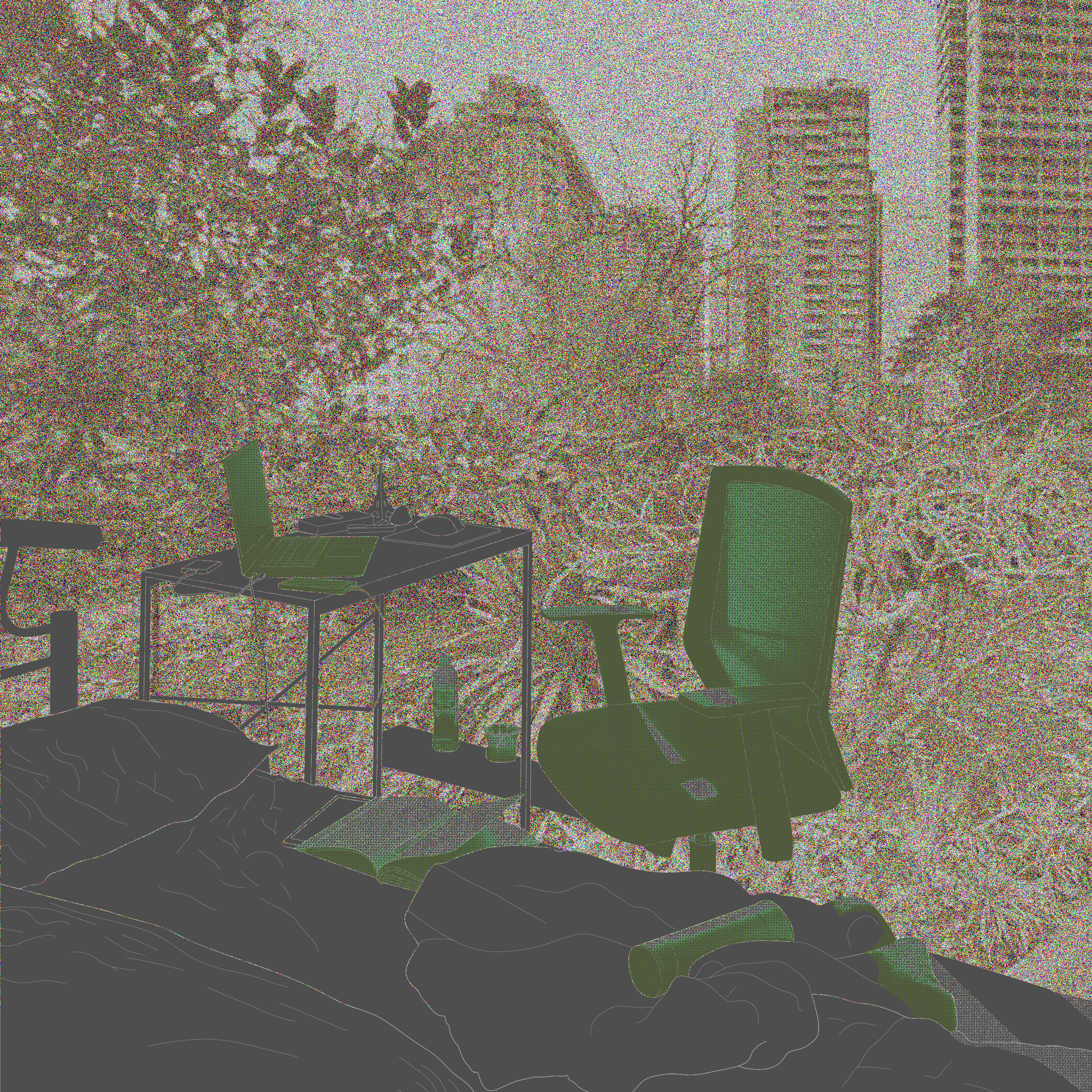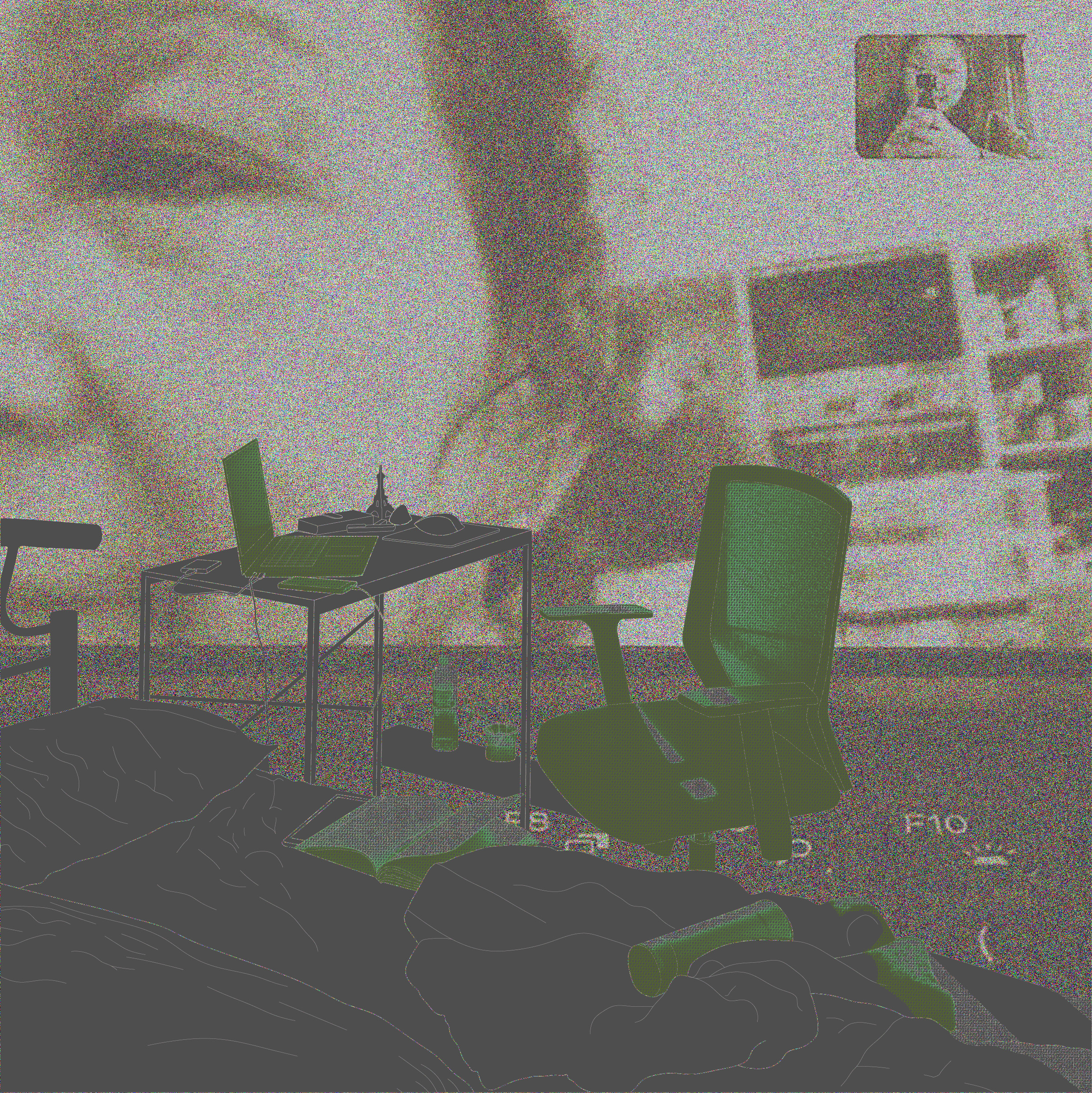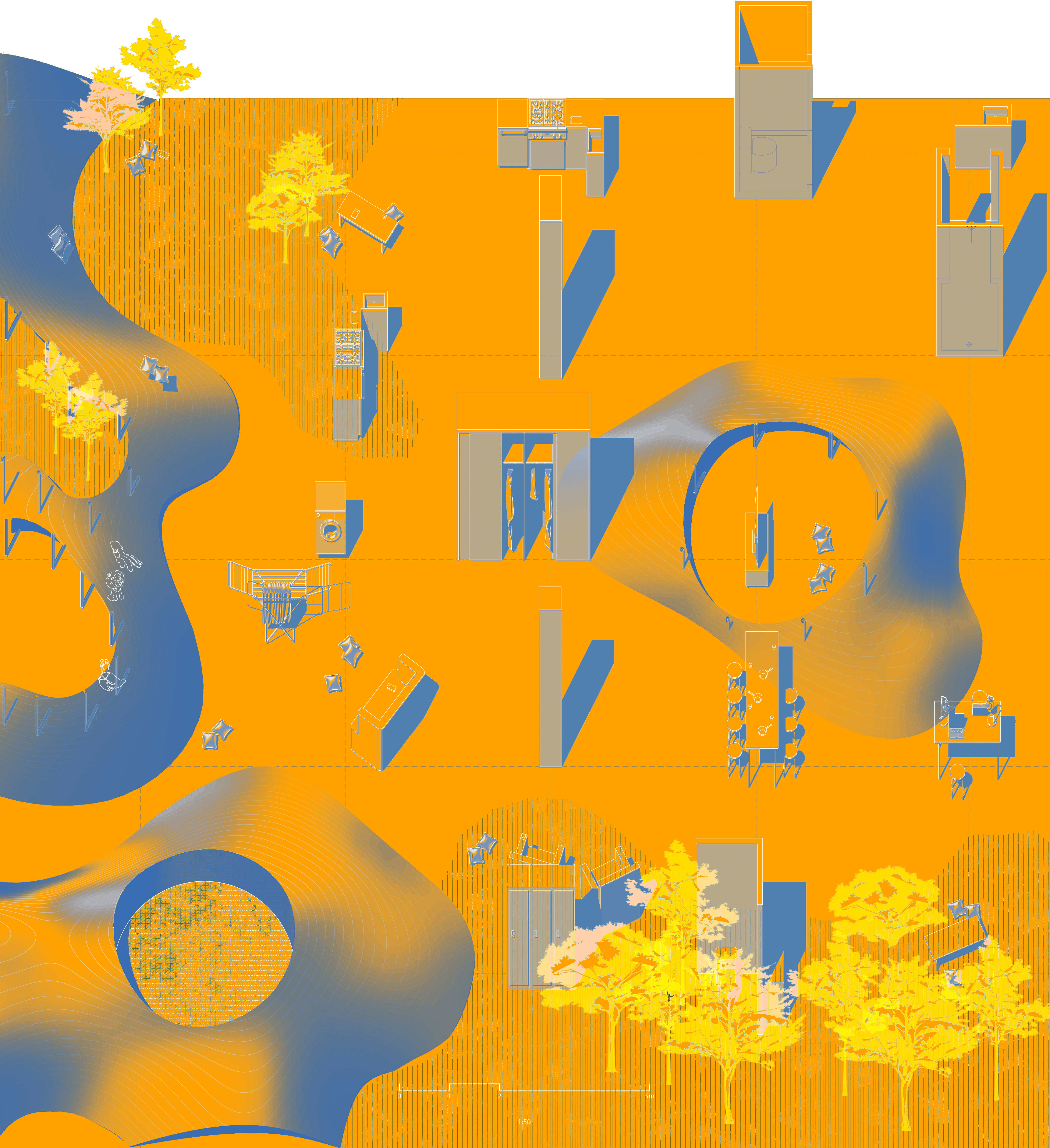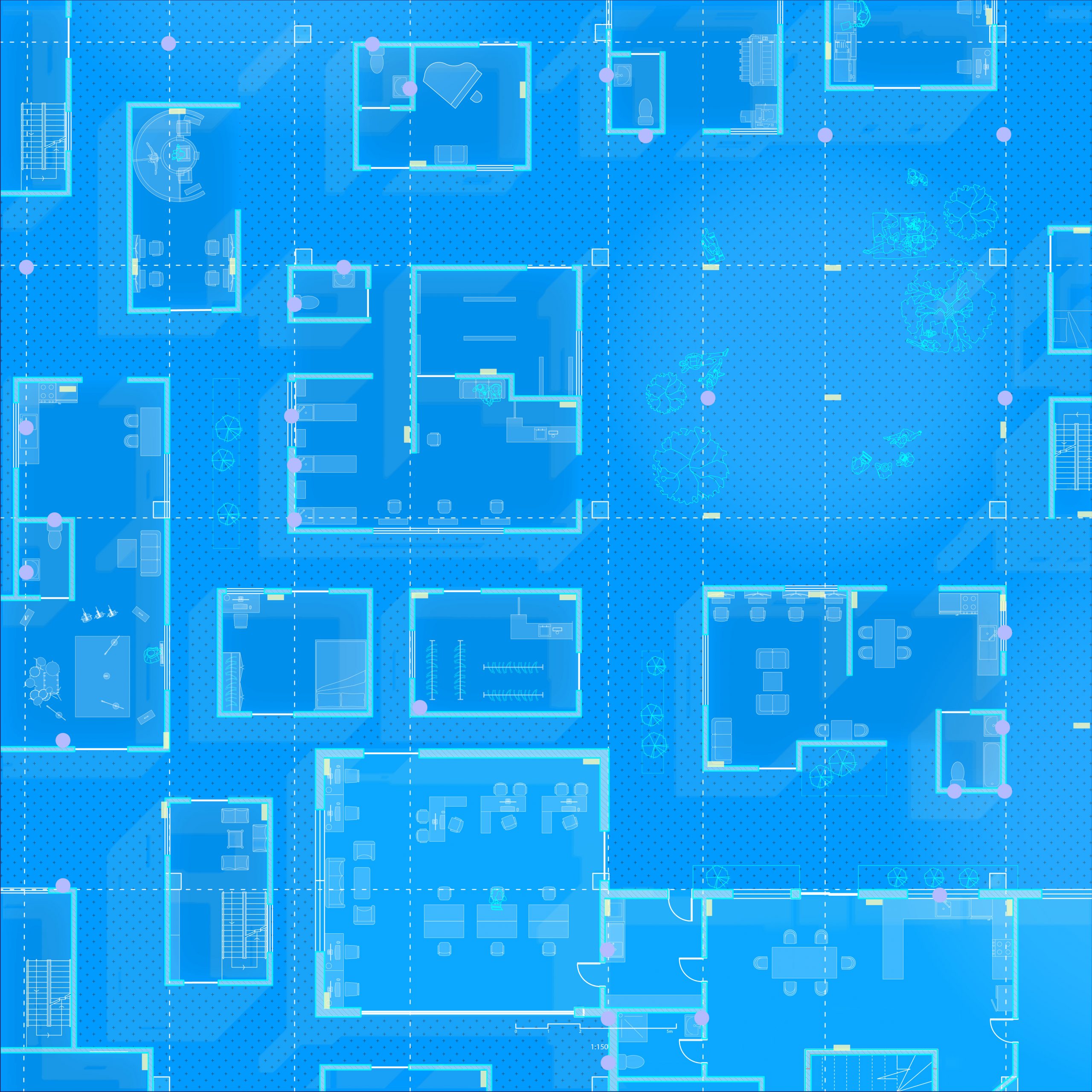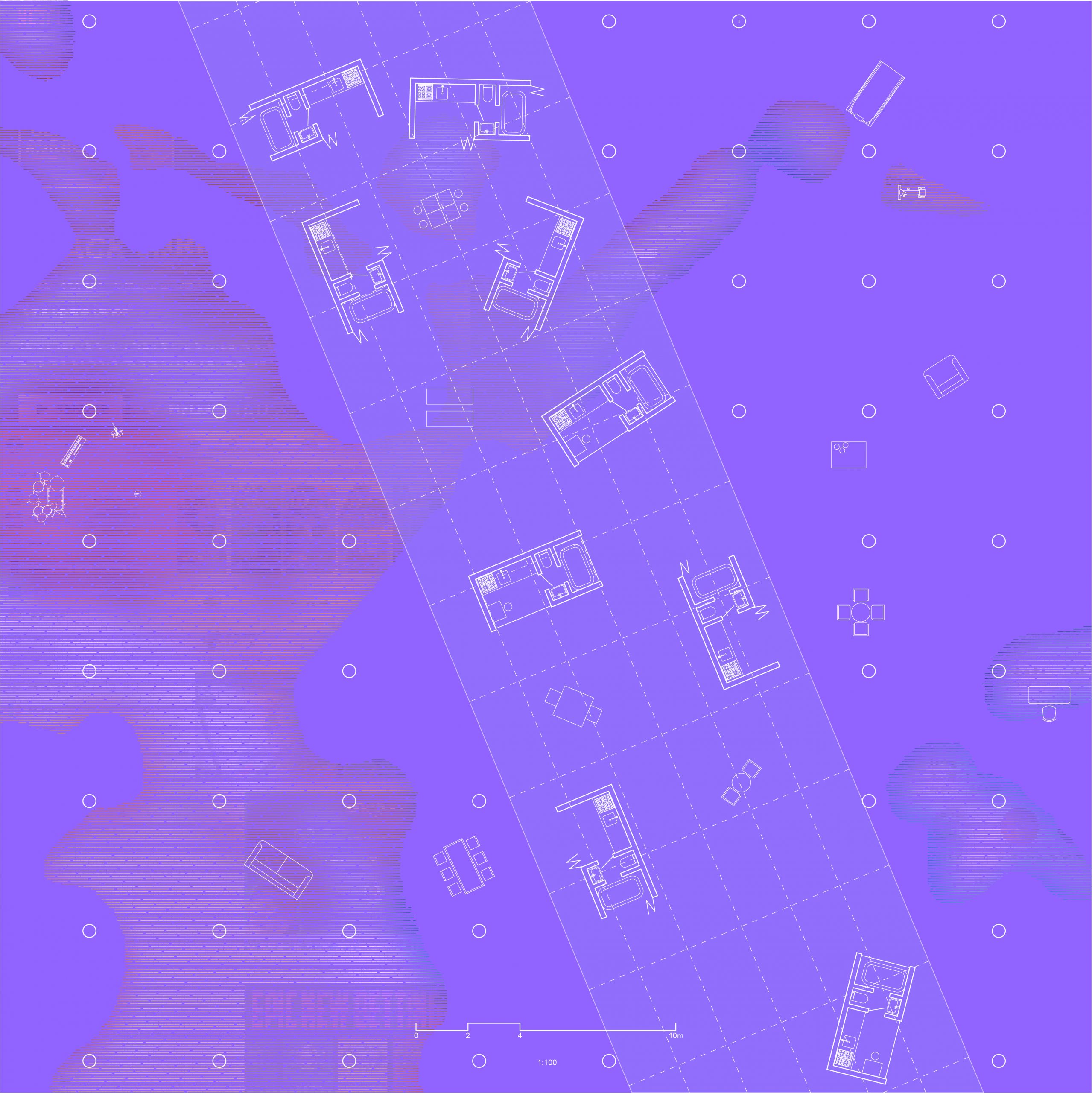Welcome to the/(y)our home.
It demands your constant focus for work that happens everywhere. We now selectively expose a part of the bedroom which has been organised for a virtual meeting for work. The kitchen and the dining table have been retrofitted and turned into an office. Deadlines are more intense than before, and we no longer have the time for a proper meal whilst working inside the kitchen. As the boundary between work/live dissolves, some may attempt to separate the inseparable by setting up a daily routine, while others may seek out new comfort, the private space within the private: Netflix, Mukbang, ASMR experience, white noise YouTube channels become the new comfort and private space without having a definite distinction between what calms you down and what distracts you.
Yet our house still symbolises the perpetuating image of ‘homeliness’: retrograde family values, forms of living and typological thinking are constantly idealised and reanimated from the inanimate. As a resulting condition of the neoliberal project, we now witness a dissolution of work/live, family forms, forms of living and the associated typologies that arise from the paring of acceleration of innovation and uncertainty. This is one of the most common and pervasive features of contemporary metropolitan life: a metaphysical and existential alienation and homelessness. In a sense, we have all become nomads. In many ways, however, the non-fixity is promising and liberating because it sets us free from historical forms of discipline, hierarchy and constraint over who we can become.
Once any illusion of home is discarded, and its mystifying powers dispelled, we can begin to investigate the deeper aspirations that lie latent behind the conditioned responses and images. By surveying our current condition of ‘home’framed at a variety of scales – from an object, interior, house, city and the globe, we can begin to understand and examine the established status quo and different ways of organising our space and daily lives. The survey of “domestic animals” will manifest the possibility to denaturalise the habitualised forms of life. Inspired by Andrea Branzi’s “Domestic Animals”, we will make precise surveys of our own “home” as documentation of the process of permanent hybridization and nomadization, where we (continuously struggle to) re-invent, retrofit, forget and live.

